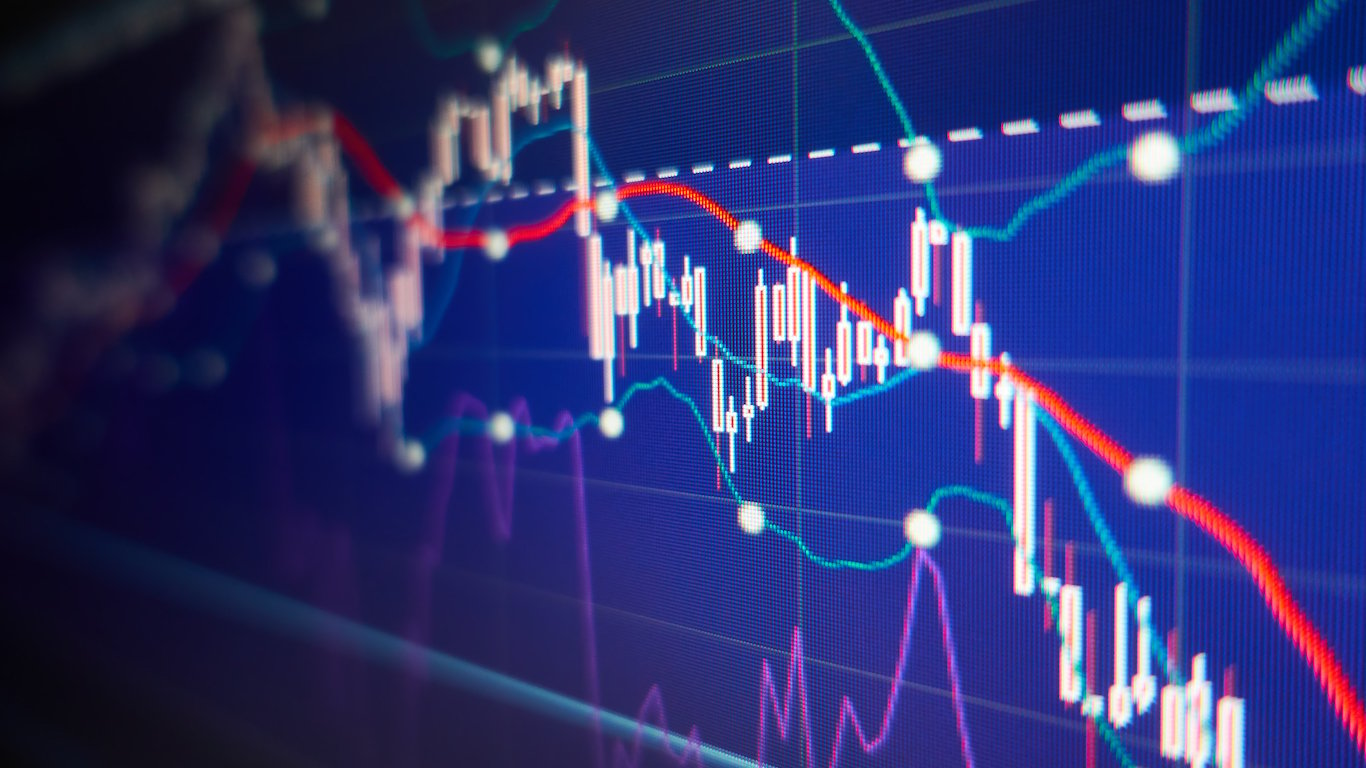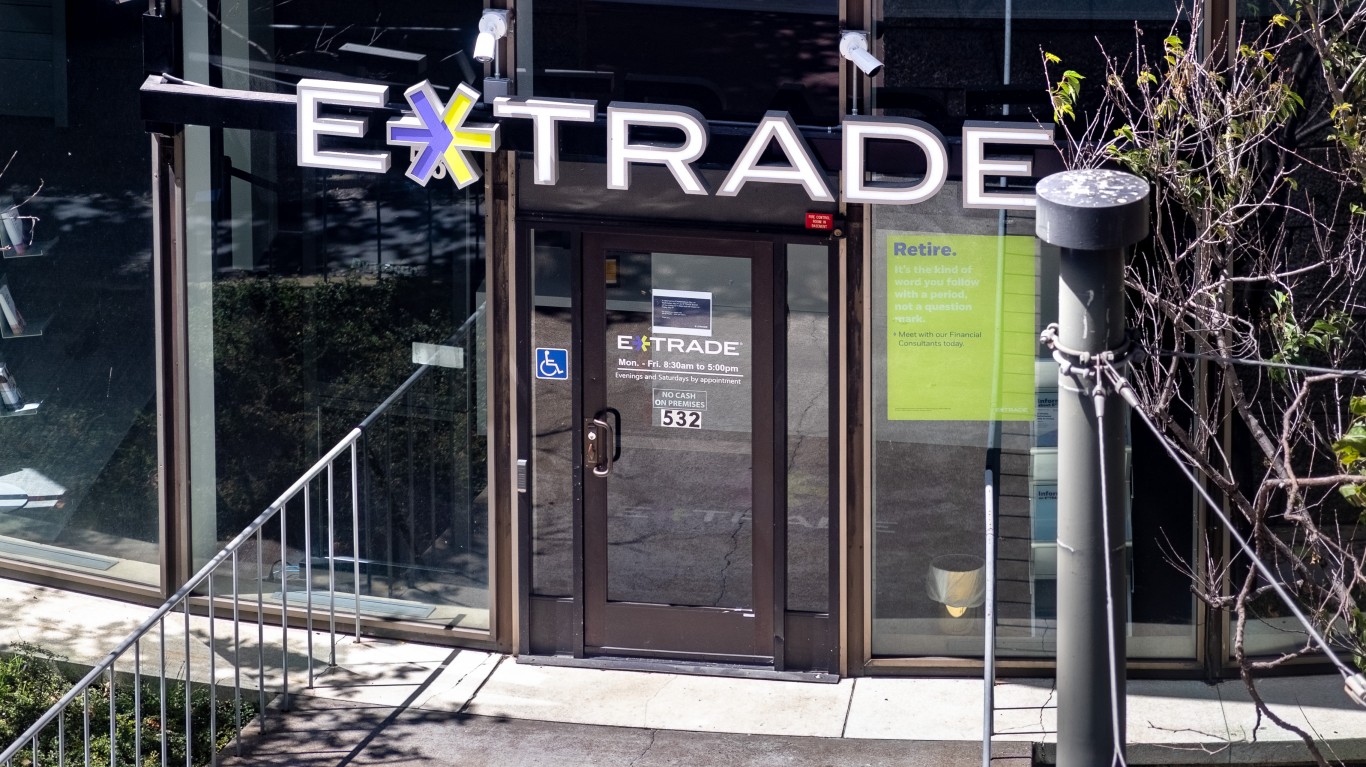

The latest financial market mayhem from the COVID-19 pandemic is causing trillions of dollars worth of economic damage. After evaluating the measures that already have been taken to thwart some of the financial blood-letting in America and around the world, it is becoming increasingly obvious that traditional fiscal policies from central banks, and even the ongoing quantitative easing measures being revisited, just aren’t adding up to be enough to stop the economy from moving rapidly from a raging bull market into a roaring bear market. There may need to be more assistance from the market players, because this sudden bull-into-bear market and rapidly slowing economy have all the hallmarks of another bad recession.
24/7 Wall St. has been evaluating how each of “the new worst trading days” since the 1987 stock market crash measure up against each other. At the same time, we have evaluated many alternative measures that the government and different agencies could enact (and some have, like buying oil) to curb the mayhem in the financial markets.
It is starting to seem more plausible that the Treasury, Federal Reserve, SEC, FINRA, politicos and the New York Stock Exchange and Nasdaq might want to consider efforts aimed at curbing trading or even halting trading entirely at this time in the stock market. Over the past month, there has been a state of bloodletting in the stock market as the coronavirus news grows worse each day. It is also more than evident that there are overwhelming expectations that more bad news around the coronavirus is coming in the weeks ahead.
Of the S&P 500 stocks, 75 of them have stock performance down in excess of 50% so far in 2020. Another 65 were down at least 40% since the end of 2019 alone. That is not normal trading behavior. It’s also no longer that insensitive to say that the financial damage from the COVID-19 is becoming the next generation’s 9/11 or wartime event, as far as the impact on the economy and how it is changing the daily lives of the population.
Several scenarios could unfold around halts and trading limits. Admittedly, many other alternatives also could be considered. The New York Stock Exchange and Nasdaq have not been immune to extended periods when equity trading was halted. The stock exchanges could move to shorten up the trading hours, and they could even vote to tighten up the circuit breakers and trading curbs that are in place today, at least temporarily.
Multiday and extended trading halts were seen from the Tuesday through Friday right after the 9/11 terror attacks in 2001. The stock market was closed for a period of four months way back in the summer of 1914 for the outbreak of World War I. The stock market is also closed on days of presidential funerals and around other sudden events, such as weather, power and technical issues.
How a trading halt would be enacted is no simple discussion. There also may not be a “one size fits all” strategy. Would the securities regulators and the powers that be want to keep the bond market open to facilitate the flow of money throughout the country and throughout the world? Would they allow pending trades that are already committed to close, or would they halt closing dates until the market was reopened? That could allow for some good or bad outcomes. Of course, there is also a risk that if things go south after reopening that a locked-in loss could be even greater than today.
While the United States is far more dominant over the rest of the financial world than some of the markets in Asia, there are other recent multiday halts to consider. China, Hong Kong and several neighboring nations simply shut the exchanges for a week or so to kick off the Chinese New Year. This year, China extended the closure of its financial markets beyond the new year period as the coronavirus was spreading rapidly. The Philippine Stock Exchange just announced that it was closing for trade ahead of the March 17 trading day and would be closed until further notice as it deals with more quarantine efforts to stem the rise in coronavirus cases there.
Issuing a multiday halt to stock market trading is an extreme and rare measure. Admittedly, there is always a chance that halting all stock market trading would create an even larger giant “whoosh effect” after the markets are allowed to reopen and act as a price discovery mechanism. At the same time, there is also the potential that halting equity trading for a period of days or weeks would offer some stability for the public that would prevent investors from hitting any panic-sell transactions for the fear that 30% losses might become 50% or 80% losses.
Thank you for reading! Have some feedback for us?
Contact the 24/7 Wall St. editorial team.
 24/7 Wall St.
24/7 Wall St.


